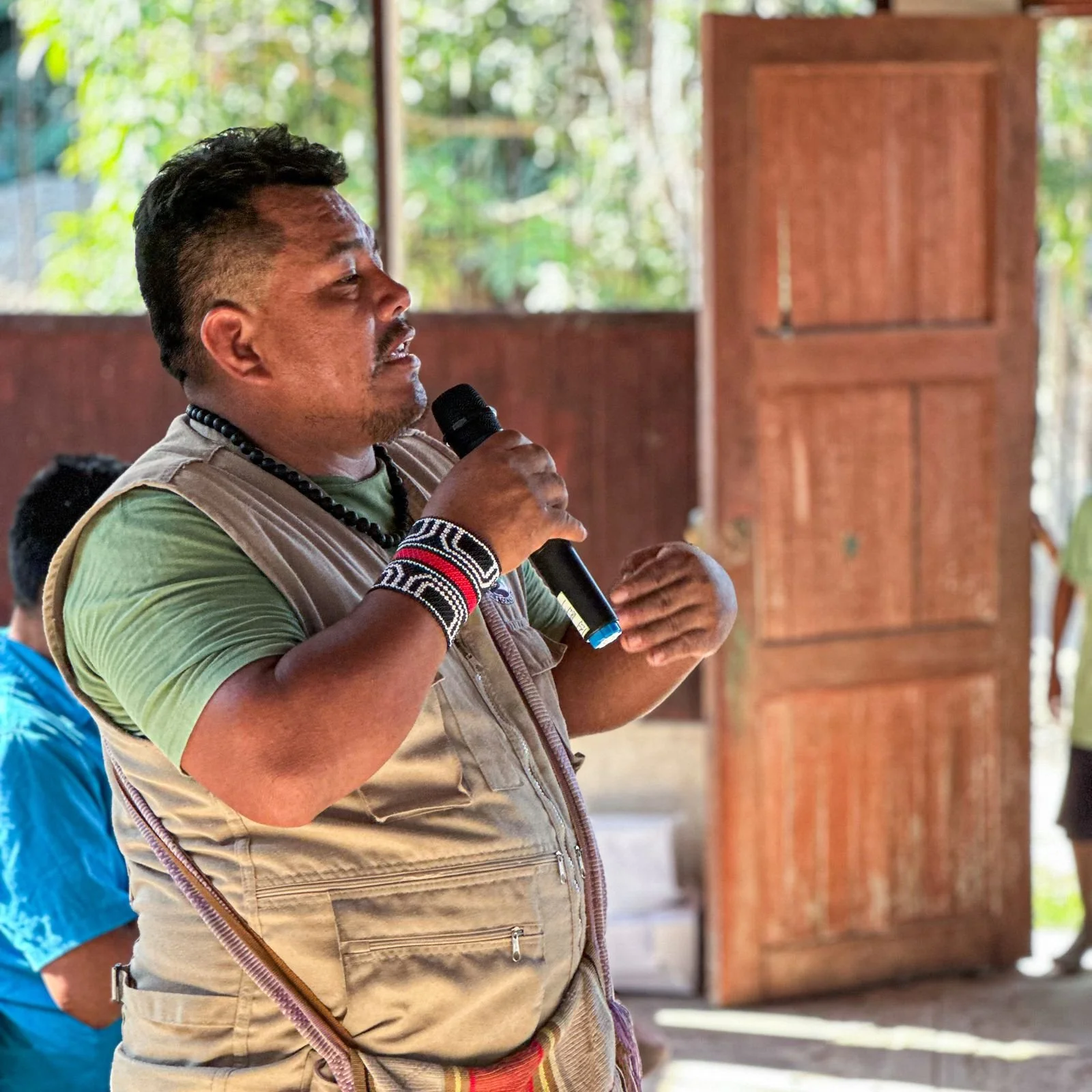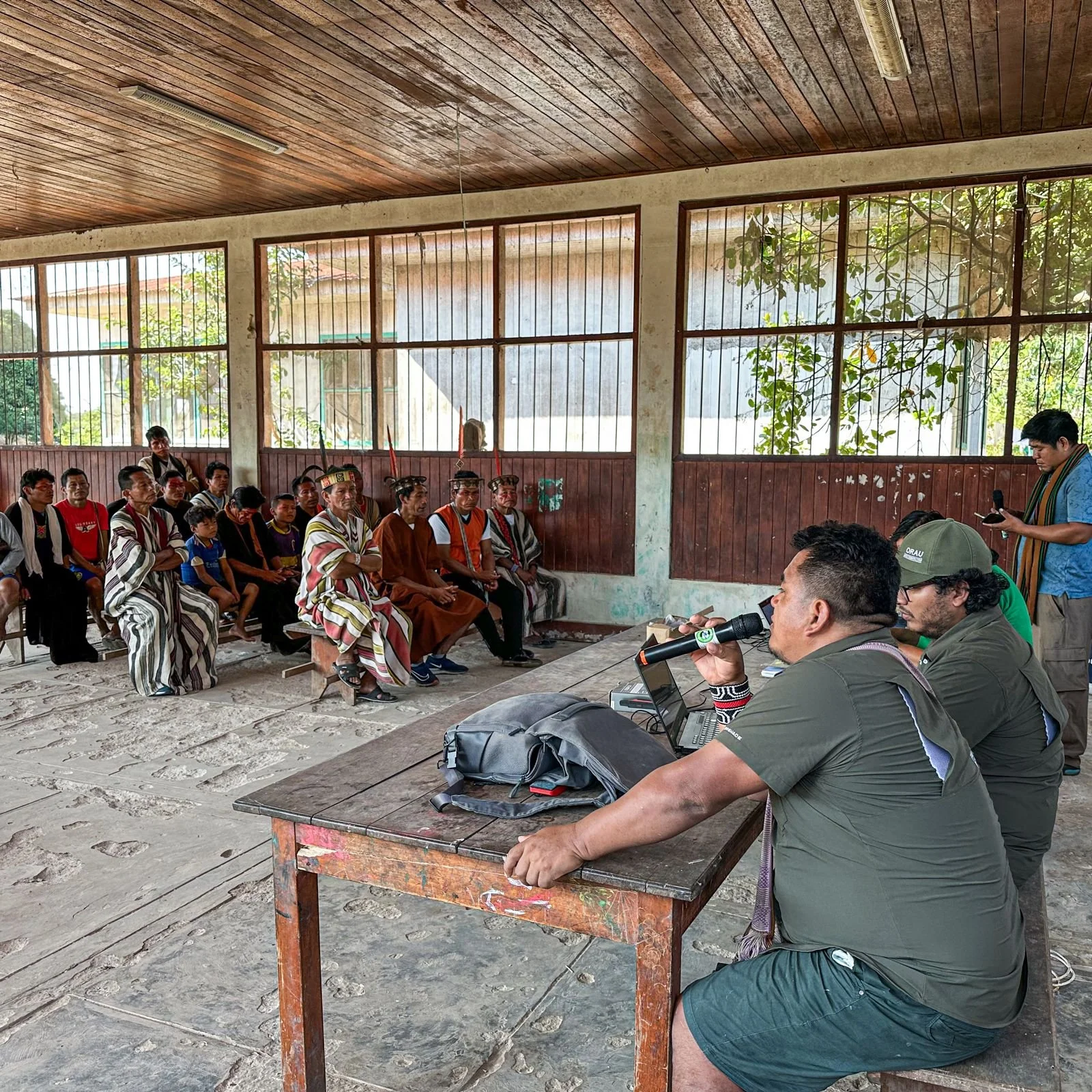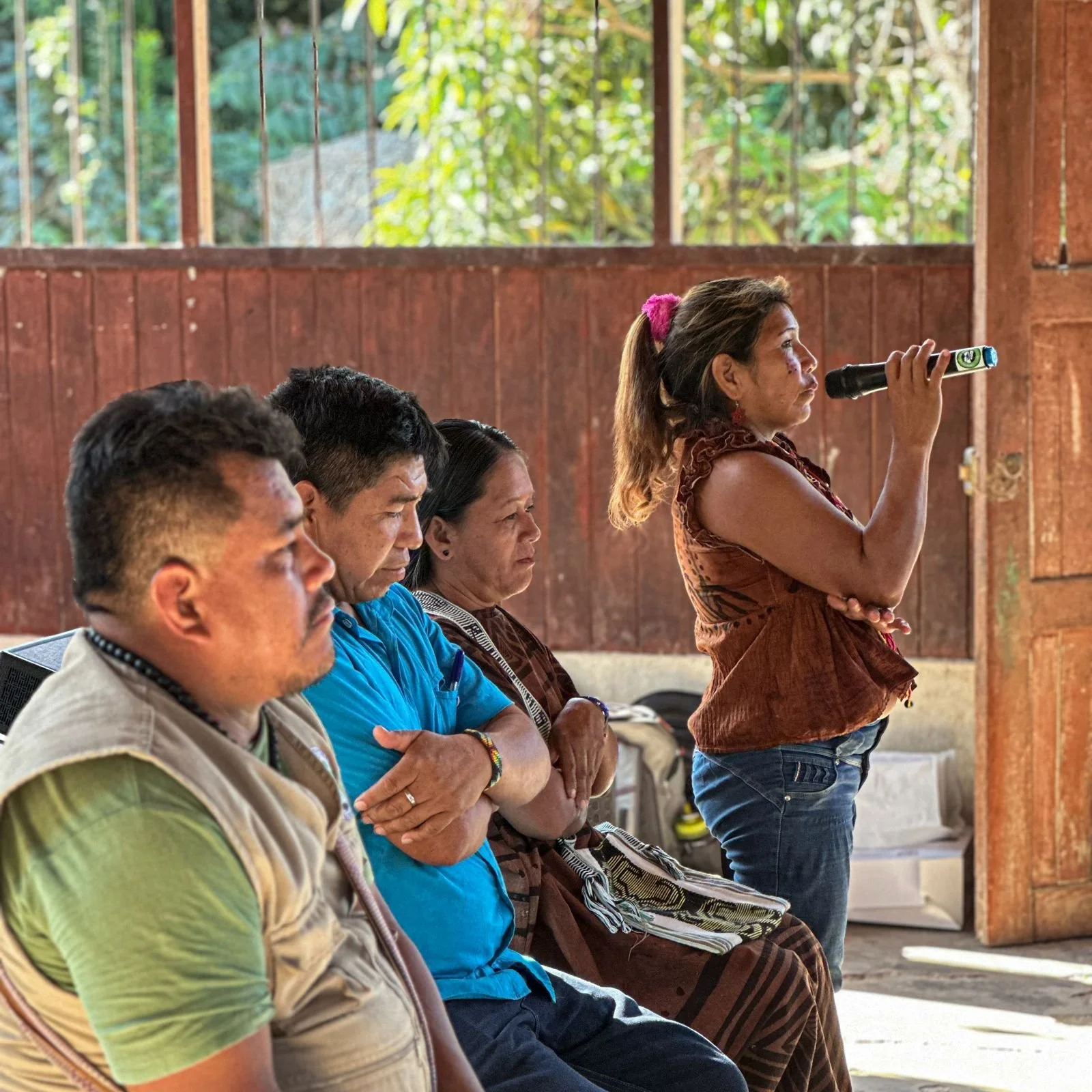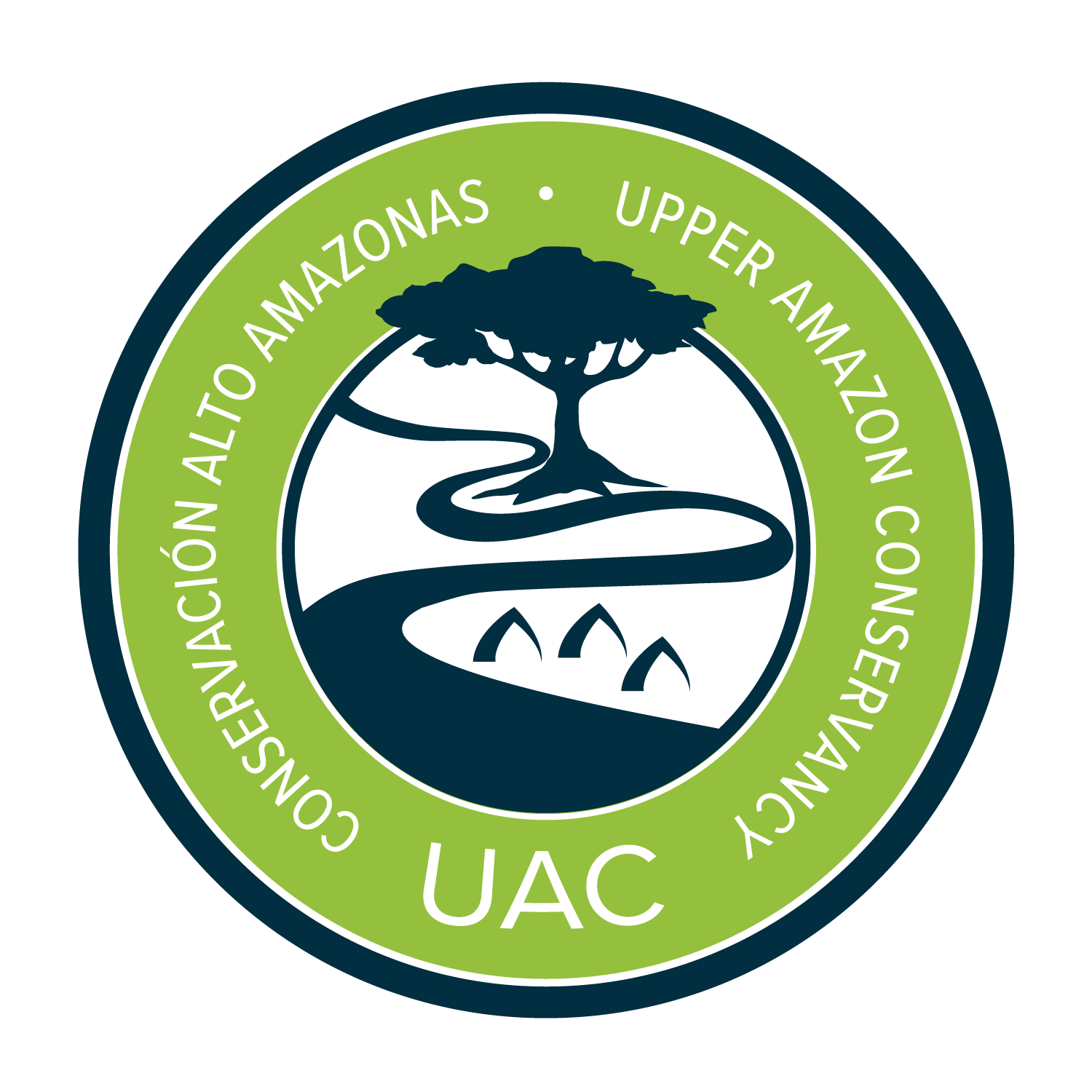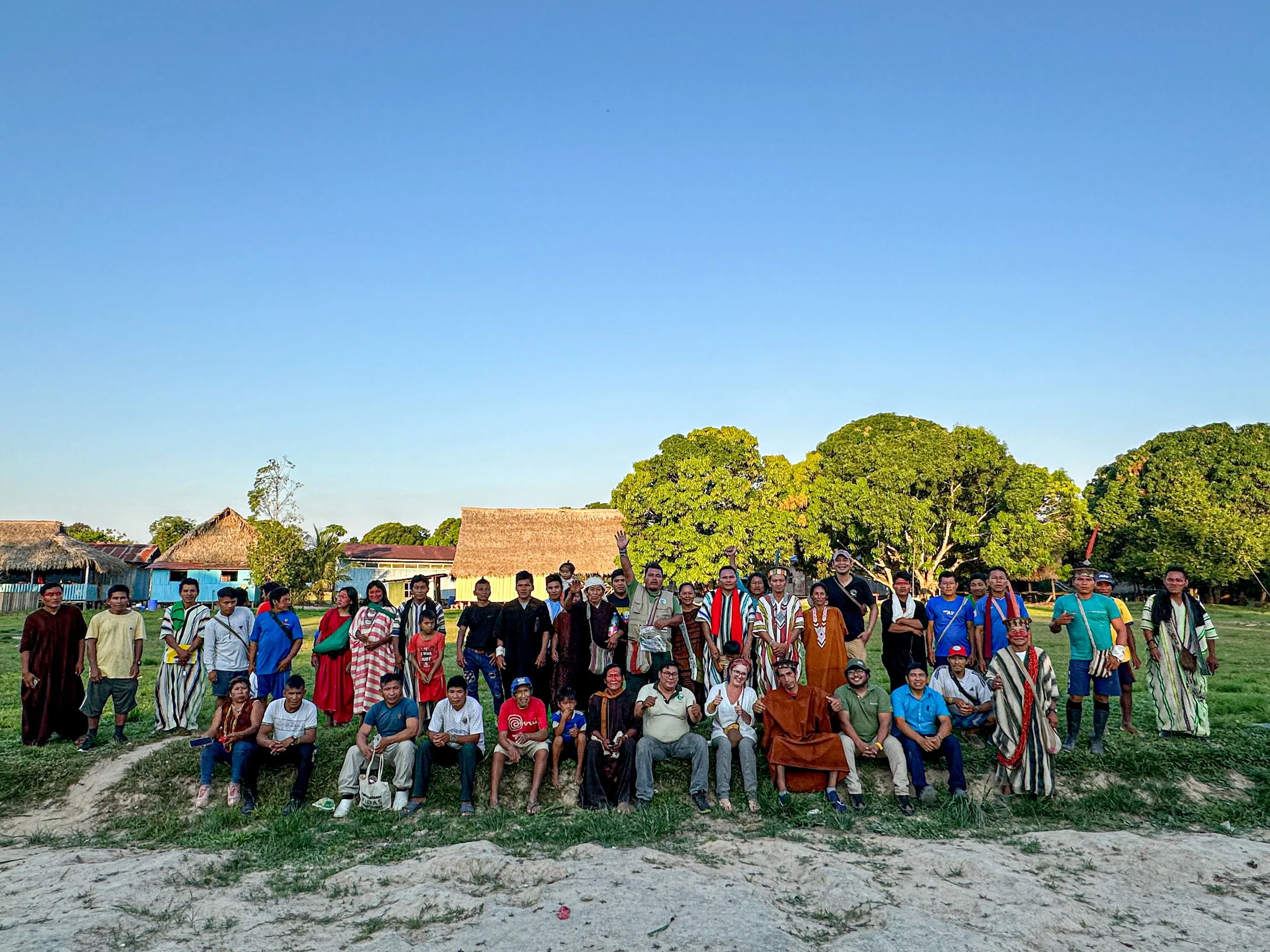ACONADIYSH Assembly Strengthens Territorial Defense and Indigenous Organization in Yurua
Participants of the ACONADIYSH Congress in the Native Community of Dulce Gloria.
On August 27 and 28, the Native Community of Dulce Gloria hosted the Congress of the Asociación de Comunidades Nativas para el Desarrollo Integral de Yurúa Yono Sharakoiai (ACONADIYSH). Over two days, representatives from base communities and their annexes gathered to receive updates from the newly elected board and to renew their common agenda around key issues including health, education, territory, employment, and the social challenges facing Indigenous peoples of the Yurua basin.
Institutional presentations provided a crucial platform for coordination. ORAU outlined its progress on initiatives for Indigenous peoples in isolation (PIACI) and community surveillance using drones. UAC highlighted ongoing work in conservation and territorial protection, sustainable management of resources such as turtles, fisheries, and asai berry, as well as support for cooperatives and advances in community georeferencing. ProPurús detailed its assistance to surveillance committees and economic activities, while the Yurua District Municipality reported on its administration and current projects.
The gathering brought together leaders from more than fifteen communities, including Dulce Gloria, San Pablo, El Dorado, Nueva Victoria, Santa Rosa, Onconashari, Nueva Bella, Nueva Luz de Arara, Oori, Beu, and Koshireni, along with their annexes. Institutional representatives such as ORAU (Jorge Guevara and Jorge Miller), UAC (William Villacorta), ProPurús (Carlos Torres), and the District Municipality (Mayor Manuel Arévalo) joined the discussions, reaffirming their joint commitment to strengthen territorial surveillance and promote sustainable alternatives for Indigenous families.
The congress concluded with the signing of an agreement that compiles the demands and priorities of the Amahuaca, Ashéninka, Asháninka, Chitonahua, Yaminahua, and Yanesha peoples. This document reflects the communities’ determination to defend their territories, consolidate their rights, and advance toward a future built on conservation, autonomy, and collective well-being.
